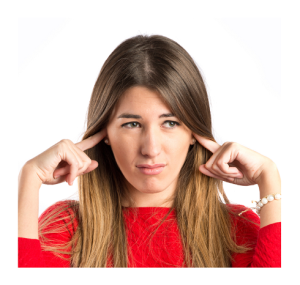Once upon a time, I loved loud music. (Hello, 1975!)
 Once upon a time, a houseful of rowdy, screaming teenage boys didn’t bother me one whit. (Yup. 2011!)
Once upon a time, a houseful of rowdy, screaming teenage boys didn’t bother me one whit. (Yup. 2011!)
Once upon a time, the noise of a crowd, of a voice overheard on the phone, of routine household sounds – all went unnoticed or were easily tuned out.
These days, I find myself acutely aware of the loudness level of a tune on the computer or dishes being put away.
That is, until a certain time of day when those same sounds cease to annoy me in the least.
So what’s going on? Is it my hearing, my brain function, my emotional state? Is it an issue of getting older?
The Sound of Silence
Give me the sound of silence any day… I make no bones about loving my blissful quiet in the morning. It went missing a few months ago as a matter of circumstance, and I’m struggling to reclaim it. When I first wake, I want to hear the hum of the heat in winter, the soft whirring of a fan in summer, and the cooing and chirping of birds outside my window in any season. Otherwise, hush please. I want no human sounds to break my gentle waking, and surely not Jumping Jack Jagger.
Otherwise, prepare the way for low-grade anxiety.
Naturally, sumptuous silence is an unrealistic scenario for most parents, not to mention anyone who doesn’t live alone. And that explains in part why, for some 18 years, I rose before my children, and gave myself the early morning quiet I so desperately seemed to crave. By the time I woke my family and we went about our routines, I’d had at least an hour to myself, and noise was irrelevant.
 What I’m finding is that noise is no longer irrelevant, even if I do have an hour before the rest of the household is up and cranking. Curious why that might be, I looked up noise sensitivity and found it far more complex than I might have imagined.
What I’m finding is that noise is no longer irrelevant, even if I do have an hour before the rest of the household is up and cranking. Curious why that might be, I looked up noise sensitivity and found it far more complex than I might have imagined.
Types of Noise Sensitivity
Types of noise sensitivity are many, and WiseGEEK offers several definitions, as types of noise sensitivity include:
- Misophonia (an inability to tolerate specific sounds, regardless of decibel level)
- Hyperacusis (sensitivity to a sound range or frequency)
In hyperacusis, a sensitivity to loud but everyday sounds that were once pleasurable (music, for example), may become a source of discomfort. (If really extreme, there are suggested treatments.)
Hyperacusis.net provides further detail, including an explanation of sound sensitivity called recruitment, which is associated with hearing loss and causes some sounds to be perceived louder than they are.
Age-Related Hearing Loss
Age-related hearing loss? We know it’s real. But could it be the cause of the sounds that seem so intrusive?
Healthline’s Overview of Age-Related Hearing Loss explains that one in three people over 60 and one in two over 85 will experience some sort of impact to their hearing, which may result from changes in:
- the inner ear or impairment in nerves responsible for hearing
- the way our brain can process sound
- the tiny hairs in the ear that transmit sound
In addition, diabetes and other medical conditions may be at work. So the “getting older” factor, though I may not quite be at senior status yet, is certainly a possibility.
More Sensitive to High-Pitched Noise
Naturally, I don’t want to think of myself as the “older generation” quite so soon, and while some sources indicate we’re more sensitive to high-pitched sounds as we age – shrieking voices, whistles, ringing, certain music – thinking back, this has been the case for me since my early 40s. When you cruise the web for conversation on this topic, you will find a surprising number of mentions crossing age ranges.
WiseGEEK also weighs in on this one, pointing out:
The underlying causes for the different types of noise sensitivity may be due to some sort of trauma to the body or as a result of some type of abnormality in the middle or inner ear that becomes apparent as the individual ages.
WiseGEEK also cites illnesses, medications, head injury, ear infections… all of which may be medical reasons for noise sensitivity.
Then again, it could all be in my head. And yours. Psychologically speaking.
Trauma? Panic? Just Pissed Off?
When I was a teenager, I was bitten by a barking dog. I did nothing to provoke the animal, and for years the sound of a barking dog made me fearful. I was hyper-sensitive to the noise as a result of (a mild) trauma, which I worked through and got over.
 But I suffer from no “broken dish trauma” and no “Rolling Stones Panic Syndrome.” I like the Rolling Stones. Just not with morning coffee.
But I suffer from no “broken dish trauma” and no “Rolling Stones Panic Syndrome.” I like the Rolling Stones. Just not with morning coffee.
My early a.m. crankiness may be something else – sensitivity to any sound that isn’t the backdrop I’ve grown accustomed to, as noise of any sort feels like an intrusion and interferes with my ability to concentrate.
Maybe I’m not sound sensitive per se; maybe I’m just pissed off.
I suspect that my emotional state is behind my near physical revulsion to particular morning sounds. I also recognize that irritation (these days), stress (any day), and age-related noise sensitivity may all be lobbying for my much desired Zero Interruptions Zone.
“Turn Down That Noise!”
Is there any one of us who doesn’t recall a mother or father fussing over our music and yelling that we should “turn down that noise?”
Whether you were were playing the air guitar to Jimi Hendrix or going through your Linkin Park stage, were you told that loud music would ruin your hearing – when what struck you was that “old people” couldn’t seem to bear any noise?
I thought of this recently, aware that if my college-aged son turns up his music early in the day (which he no longer does), I invariably ask him to dial it down. In the evening? I have no problem whatsoever, especially if he’s on the piano filling the house with Chopin. So I ask myself again if there is something in the aging process that causes this, and that includes my attitude and emotional state as well as my brain and hearing. Are we more easily irked by anything that interrupts our concentration – and sound is simply one of the more common disruptions that may occur?
Note: If you are experiencing hearing discomfort or sound sensitivity, it is recommended that you visit your physician and get checked out.
You May Also Enjoy
I always needed silence to balance out the overload of noise that was part of raising three boys. After all these years I still remember breathing in and out deeply when I returned to my quiet home after dropping them off at school. As for music, it has to be pretty (in my case the ‘classic’ classics) to earn a spot in my living room. But I presume I am more sensitive now than I was twenty-five years ago.
About six years ago I lost my hearing temporarily due to lots of aspartame in products I was consuming. Since then I’m way conservative about noise, carry ear plugs and even at concerts will wear at least one in the ear affected. I don’t think it’s your imagination.
You might want to investigate Adrenal Fatigue. Although a physical problem, it manifests as emotional vulnerability, particularly in being extremely prone to irritation, and as inability to withstand assaults that you formerly would not even notice. It has crept up on me the last few years, aided by years of unrelenting stress, as well as some other physical issues, manifesting first as chronic fatigue, and eventually resulting in complete physical collapse.
An example of mine which relates to yours is inability to tolerate certain phone calls taking place in the house. Although I won’t go into details, they involve the speakerphone, and various other parties also resonating on the plane of fatigued hysteria. I had to ask that those be conducted out of my immediate presence. The clear emotional stress eventually turned into clear physical stress. When the Sandy Hook shooting took place I felt the event through both emotional and physical impact. This seemed disproportionate, even given the tragedy.
For sound in general, as you have hinted, context seems extremely important. I love loud music in those instances when I take deliberate steps to hear loud music. That doesn’t mean I like it while I am eating at an otherwise serene restaurant, or that I like disruptive raucous laughter at adjoining tables.
Going back to Adrenal Fatigue, it is somewhat like PTSD. It is insidious, contagious, and potentially deadly to a relationship once it starts in one or both partners. If the relationship has inherent problems, the Adrenal Fatigue magnifies them, behaviorally, as well as in your perception.
Big individual differences on sound (including noise) tolerance, relating to age and culture as well as genetics. It’s also a matter of control (we do better with our own self-generated/controlled noises). Want to upset your son? Play some of YOUR music at loud volume whenever you care to, such as when you wake up early in the morning (not actually advisable, of course).
As well as the annoyance and cultural disrespect that all this involves, we are indeed deafening ourselves with over-stimulation. And crucial communication is interfered with.
This was a lecture topic of mine when I taught Human Factors. While my advanced training was focused on the human senses, the only research I ever did directly on hearing was on “hearing” in tarantulas. 🙂